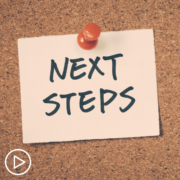Should You Mention That You Are a Cancer Survivor on Your Resume?
For many cancer survivors, the thought of getting back to work after your treatment is over can be a scary one. There are so many questions that you might have, and the idea of returning to total normality can feel strange and scary.
This doesn’t have to be the case though and there are plenty of things you can do thrive in life after beating cancer. One of the best ways to do this is to get yourself back in the world of work. One of the biggest questions you will have about doing this, though, is going to be whether or not you should disclose information about your battle, and if so, how much? We’ve compiled a useful guide to help you work your way around some of these issues.
Getting Back Into Work as a Cancer Survivor
Making a return to work after you have completed your treatment and received the all-clear can feel like a terrifying step. It can also be one of the most positive things you can do as a cancer survivor.
Not only does returning to work provide you with a return to normality, but it can also remind you that there is a life away from cancer, and it’s one that involves you. You are more than just a cancer survivor; you are a great friend, a hard-working employee, and a valued member of the workforce.
If you are thinking of returning to work, you should make sure that you have cleared everything up with your doctor or medical advisor first. You will need to make sure that there aren’t tasks that could put you at risk. You should work out the kind of schedule you will be able to work and the effects that it may have on your body. You will also have to make some important decisions about sharing your diagnosis with your colleagues and your employers.
How to Mind the Gap in Your Resume
One of the biggest concerns for cancer survivors looking to find a new line of work is the gap in their resume. With the modern job market being such a tricky one to navigate, many feel as though having a huge gap in your resume, or applying for a job unemployed, can have a serious impact on your chances of getting employed.
Thankfully, while a gap on your resume can appear bad to potential employers, there are plenty of different ways that you can get around such an issue.
Put an Emphasis on Your Skills and Qualifications
At the top of your resume, list your skills and qualifications instead of your work history. Putting an emphasis on what you can do instead of what you have been able to do is going to help show off your strengths.
Make a list of examples underneath each of your highlighted skills and, if possible, demonstrate scenarios from previous jobs that can really help shine a positive light on you.
Don’t Worry About Times
If you have been out of employment for a while, then you may have some concern that you are going to be unemployable. This is a natural concern, but it is one that can be avoided. When you list your job experience, instead of listing the dates, you should list the amount of time that you worked in a job.
For example, instead of saying – IT Manager 2016-2018, you could write, IT Manager – 2 years. While this may not prevent questions coming up in the interview concerning the gaps in your resume, it will give the chances of you being provided with a job interview a significant boost.
Mention Volunteer and Community Work
Mentioning any volunteer or community-based work that you have done can really help give your resume a boost. You should list any sort of volunteer or community roles that you have done and talk about the transferable skills that you have gained from them. This can be a great way of highlighting your skills and taking away any attention there may be from a break in employment.
Speak to a Professional
If you are really finding it difficult to navigate the career gap on your resume, then you can always consider speaking to a professional careers advisor or CV writer. These services don’t have to cost money either.
Local councils at unemployment offices may have someone on hand to help, while a lot of universities and colleges will also have career advice sectors that may be happy to lend a helping hand.
What About the Job Interview?
For many cancer survivors, the job interview itself can be the trickiest part of the process. While you are under no obligation to explain your medical history to any potential employer, there is also the possibility that they may have to take certain workplace precautions to help you with your recovery.
Fear not though, an employer can not discriminate against you because of your medical history. Equally, if you do not feel you need to disclose any information, then you shouldn’t. There may be questions that come up regarding your work history and gaps in your employment, and if you do not feel comfortable explaining that you are a cancer survivor, then you can always offer up an alternative explanation or explain that you are not comfortable talking about things.
Remember, Confidentiality is Important
The most important thing to remember is that your confidentiality is essential. If you don’t want to mention that you’re a cancer survivor either on your resume or in person, then you don’t have to.
Your diagnosis is nobody’s business, but your own. If, however, you feel as though it is best that your employer knows about your health for practical reasons, then you should also not feel like you are a burden or being difficult by doing so.
Alex C. Porter is a career advice expert with years of experience in the field. Right now he works at CraftResumes where he writes medical resumes, you can find more info here.










